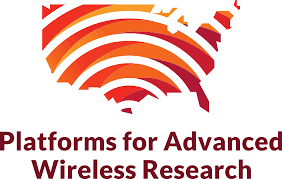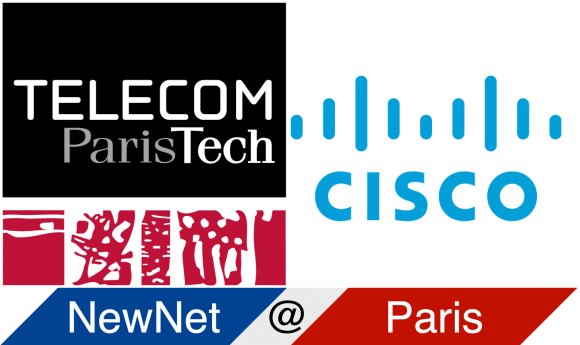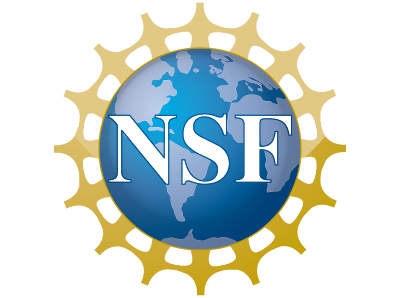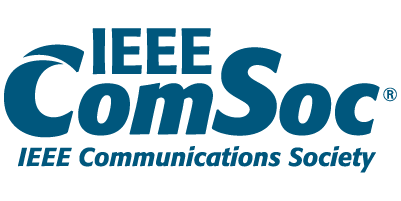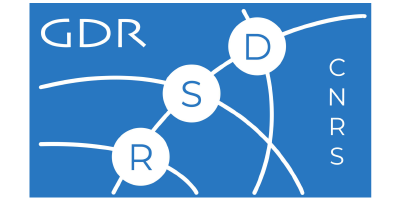The 5th IEEE INFOCOM Workshop on Computer and Networking Experimental Research using Testbeds 2019 (IEEE CNERT 2019)
29 April, 2019 ● 08:00 – 17:30 ● Room: Scene A+B
Demo Session ● 18:00 – 20:00 ● Room: Scene A+B ● All workshop attendees welcome!
Experimentation has played an important role in advancing computer and networking research. Although analysis and simulation are important tools in studying the behavior of data traffic and analyzing new protocols and algorithms, it is essential that new research ideas be validated on real systems. To facilitate researchers, a variety of testbeds have been built in academia, national laboratories, and industry. Example testbeds include GENI, PlanetLab, Emulab, ORBIT, BGP-Mux, Amazon, Fed4FIRE+, and the new PAWR testbeds, among many others. This workshop will bring together researchers and technical experts to share experiences and advance the state of the art in experimental research in areas such as networking, distributed systems, and cloud computing.
The workshop has a strong experimental component. It includes live demonstrations in a demo session. In addition to a best paper award, we will grant an award to the best demo that exemplifies the principles of experiment repeatability and reproducibility on real systems with running code.
Steering Committee:
Piet Demeester (Ghent University - imec, Belgium)
Ibrahim Matta (Boston University, USA)
Violet Syrotiuk, Chair (Arizona State University, USA)
Kaiqi Xiong (University of South Florida, USA)
Technical Program Chairs:
Jiasi Chen (University of California, Riverside, USA)
Thomas Watteyne (Inria, France)
08:00 – 8:05
Opening Session
Chairs: Jiasi Chen and Thomas Watteyne
8:05 – 9:00
Keynote Session
Ingrid Moerman (Ghent University - imec, Belgium)
Title: Wireless experimentation with SDR: the way to drive innovation
Abstract: There exist many ways for researching and developing innovative solutions: from theoretical analysis, simulations, small-scale set-up to large-scale experimentation. This first part of this talk will discuss the benefits and pitfalls of different approaches and illustrate them with some concrete examples.
While experimentation seems to be most challenging approach, the second part of this talk will present how the software defined radio (SDR) facility offered in the H2020 ORCA project is capable to accelerate wireless innovation. The advantage of SDR over “off-the-shelf” technology is that it enables full and open implementation of all network functionality, also the lower physical and medium access control (MAC) layers. The ultimate goal of the ORCA project is to enable wireless experimenters to unlock the potential of reconfigurable radio technology by setting up advanced experiments involving end-to-end applications that require control of novel wireless technologies or cooperation between multiple networked SDR platforms within extreme and/or diverging communication needs in terms of latency, reliability or throughput, well before new radio technologies become available on the market in commercial off-the-shelf products.
In the third and last part of the talk, the ORCA vision towards orchestrating next-generation services through end-to-end network slicing will be presented. Network slicing (also known as network virtualization) allows network resources to be used in a flexible, dynamic, and customized manner, and most crucially, provides isolation between different virtual networks. ORCA believes that each network segment should have their own orchestrator, tailored to the segment’s particularities. The use of a separate orchestrator for each network segment reduces complexity and breaks down the larger E2E network orchestration problem into smaller parts. In this way, each segment orchestrator can focus on a limited number of well-defined tasks, reducing the software complexity, both in terms of design and implementation. The ORCA vision is expected to foster innovation for everyone (not only big industrial players, but also smaller companies and the research community), to reduce development life-cycle, to simplify standardisation and to stimulate multi-disciplinary experimentation.
Bio: Ingrid Moerman has received her degree in Electrical Engineering (1987) and the Ph.D. degree (1992) from the Ghent University, where she became a part-time professor in 2000. She is a staff member at IDLab, a core research group of imec with research activities embedded in Ghent University and University of Antwerp. Ingrid Moerman is coordinating the research activities on mobile and wireless networking, and she is leading a research team of about 35 members at Ghent University. Her main research interests include: collaborative and intelligent cognitive radio networks, real-time software defined radio, flexible end-to-end hardware/software architectures for radio/network control and management, Internet of Things, Low Power Wide Area Networks (LPWAN), Next generation wireless networks, and experimentally-supported research. Ingrid Moerman has a longstanding experience in running and coordinating national and EU research funded projects. At the European level, Ingrid Moerman is in particular very active in FP7/H2020, where she has coordinated and is coordinating several FP7/H2020 projects (CREW, WiSHFUL, eWINE, ORCA).
Ingrid Moerman is further leading team SCATTER, consisting of researchers from IMEC-IDLab and Rutgers University (US), in the DARPA Spectrum Collaboration Challenge (SC2). Team SCATTER has so far been awarded two prizes of 750 000 USD each in Phase 1 and Phase 2 of the DARPA SC2 competition and is now participating in the third and last phase of the competition, which will end with a live finale at Mobile World Congress Americas Los Angeles in Oct 2019.
Ingrid Moerman is author or co-author of more than 750 publications in international journals or conference proceedings.
9:00-10:00
Panel: “Experimenter’s Wishlist”: What new network experiments are desired, and what new capabilities are needed?
Manu Gosain (Technical Program Director, PAWR Project Office, USA), Monisha Ghosh (Program Director, NSF, USA), Serge Fdida (Professor, Université Pierre et Marie Curie UPMC, Sorbonne University, and EU EMPOWER), Remy Bayou (European Commission DG Connect, and PO EMPOWER CSA)
10:00–10:30
Coffee Break
10:30-11:30
Session 1: Tools and benchmarks
Walker: DevOps Inspired Workflow for Experimentation
Mikołaj Chwalisz (Technische Universität Berlin, Germany); Kai Geissdoerfer (Technische Universität Dresden, Germany); Adam Wolisz (Technische Universität Berlin, Germany)
SMARTEEX: a software tool for SMART Environment Experiments
Gaia Maselli, Mauro Piva, and Domenicomichele Silvestri (Sapienza University of Rome, Italy)
OpenBenchmark: Repeatable and Reproducible Internet of Things Experimentation on Testbeds
Mališa Vučinić (Inria, France); Bozidar Skrbic, Enis Kocan, and Milica Pejanovic-Djurisic (University of Montenegro, Montenegro); Thomas Watteyne (Inria, France)
11:30-12:30
Session 2: Wireless testbeds
A Real-Time mmWave Communication Testbed with Phase Noise Cancellation
Adnan Quadri and Huacheng Zeng (University of Louisville, USA); Thomas Hou (Virginia Tech, USA)
A Multi-domain Experimentation Environment for 5G Media Verticals
Polychronis Valsamas, Ilias Sakellariou, Sophia Petridou and Lefteris Mamatas (University of Macedonia, Greece)
OpenTestBed: Poor Man's IoT Testbed
Jonathan M Munoz (Inria, France); Fabian Rincon (ENSTA ParisTech, France); Tengfei Chang (Inria, France); Xavier Vilajosana (Universitat Oberta de Catalunya, Spain); Brecht Vermeulen, Thijs Walcarius, and Wim Van de Meerssche (Ghent University - imec, Belgium); Thomas Watteyne (Inria, France)
12:30–14:00
Lunch Break
14:00–15:30
Session 3: Wireless experimentation
Constructive Interference Precoding for Reliable Non-Orthogonal IoT Signaling
Tongyang Xu and Fan Liu (University College London, United Kingdom (Great Britain)); Ang Li (University of Sydney, Australia); Christos Masouros and Izzat Darwazeh (University College London, United Kingdom (Great Britain)
Distributed Processing for Encoding and Decoding of Binary LDPC codes using MPI
Bhargav Gokalgandhi and Ivan Seskar (WINLAB, Rutgers University, USA)
Experimental Study of User Selection for Dense Indoor Massive MIMO
Cheng-Ming Chen and Qing Wang (KU Leuven, Belgium); Abdo Gaber (National Instruments, Germany); Andrea P Guevara and Sofie Pollin (KU Leuven, Belgium)
Invited paper: Experimental Clock Calibration on a Crystal-Free Mote-on-a-Chip
Ioana Suciu (Polytechnic University of Catalonia & Worldsensing, Spain); Filip Maksimovic, David Burnett, Osama Khan, Brad Wheeler and Arvind Sundararajan (University of California, Berkeley, USA); Thomas Watteyne (Inria, France); Xavier Vilajosana (Universitat Oberta de Catalunya, Spain); Kris Pister (University of California, Berkeley, USA)
15:30–16:00
Coffee Break
16:00-17:00
Session 4: Wired testbeds
Emulation of Storage Performance in Testbed Experiments with Distem
Abdulqawi Saif, Alexandre Merlin (Université de Lorraine, France), Olivier Dautricour (Université de Lorraine & Telecom Nancy, France), Maël Houbre (Telecom Nancy, France), Lucas Nussbaum, and Ye-Qiong Song (Université de Lorraine, France)
Wide-area Software Defined Networking Experiments using Chameleon
Paul Ruth and Mert Cevik (RENCI - University of North Carolina at Chapel Hill, USA); Kate Keahey (Argonne National Laboratory, USA); Pierre Riteau (StackHPC, United Kingdom (Great Britain)
Application-based QoE support with P4 and OpenFlow
Divyashri Bhat (University of Massachusetts, USA); Jason Anderson (University of Chicago, USA); Paul Ruth (RENCI - University of North Carolina at Chapel Hill, USA); Michael Zink (University of Massachusetts Amherst, USA); Kate Keahey (Argone National Lab, USA)
17:00-17:20
Lightning Demo Advertisements
17:20-18:00
Break / demo setup
18:00 – 20:00
Demo session
A Mobile Edge Computing-based Collision Avoidance System for Future Vehicular Networks
Francisco Vázquez-Gallego and Ricard Vilalta (Centre Tecnològic de Telecomunicacions de Catalunya (CTTC), Spain); Arnau Garcia Olmos (Pompeu Fabra University, Spain); Fermin Mira Perez, Selva Via, and Raul Muñoz (Centre Tecnològic de Telecomunicacions de Catalunya (CTTC), Spain); Miguel Catalan-Cid (i2CAT Foundation, Spain); Jesus Alonso-Zarate (Centre Tecnològic de Telecomunicacions de Catalunya (CTTC)) confirming author list (order different in paper)
Experimental Demonstration of a Packet-based Protection for Seamlessly Recovering a Multi-layer Metro Network Fronthaul Failure
Koteswararao Kondepu (Sculoa Superiore Sant'Anna, Italy); Shunmugapriya Ramanathan, Marco Tacca, Miguel Razo, and Behzad Mirkhanzadeh (University of Texas at Dallas, USA); Francesco Giannone and Luca Valcarenghi (Scuola Superiore Sant'Anna, Italy); Andrea Fumagalli (University of Texas at Dallas, USA)
The EMF RATEL Service for Monitoring and Public Informing on EMF Exposure
Nikola Djuric (University of Novi Sad, Serbia); Nikola Kavecan (Falcon-Tech, Serbia); Maja Mitic and Nenad Radosavljevic (Regulatory Agency for Electronic Communications and Postal Services, Serbia)
Relay Selection with Beamforming for Coverage Extension
Hicham Khalife, Raphael Naves, Jawad Seddar, Didier Pirez, and Vania Conan (Thalès communications, France)
Sled: System-Loader for Ephemeral Devices
Lincoln Thurlow (Information Sciences Institute & University of Southern California, USA); Ryan Goodfellow (Washington State University, USA)
Internet measurements on EdgeNet
Kevin Vermeulen, Burim Ljuma, Olivier Fourmaux, and Timur Friedman (Sorbonne Université, France)
Experimental IoT Testbed for Testing the 6TiSCH and RPL Coexistence
Gordana Gardasevic, Predrag Plavsic, and Dragan Vasiljevic (University of Banja Luka, Bosnia and Herzegovina)
Testbed for warehouse automation experiments using mobile AGVs and drones
Matteo Ridolfi, Nicola Macoir, Jono Vanhie-Van Gerwen, Jen Rossey, Jeroen Hoebeke, and Eli De Poorter (Ghent University - Imec, Belgium)
Simulating a 6TiSCH Network using Connectivity Traces from Testbeds
Yasuyuki Tanaka, Thomas Watteyne, and Keoma Brun-Laguna (INRIA, France)
Framework for PHY-MAC layers Prototyping in Dense IoT Networks using FIT/CorteXlab Testbed
Othmane Oubejja (Université de Lyon & INRIA, France); Diane Duchemin (INRIA, France); Matthieu Imbert (INRIA, France); Leonardo S. Cardoso (Université de Lyon & INRIA, INSA-Lyon, CITI-INRIA, France); Jean-Marie Gorce (INSA-Lyon & CITI, Inria, France)
A Testbed-In-The-Loop System for Experimenting with Network Configurations at Scale
Yufeng Xin and Michael Stealey (University of North Carolina, USA); Mert Cevik (RENCI - University of North Carolina at Chapel Hill, USA); Joud Khoury and Michael Kremer (Raytheon BBN Technologies, USA)
Walker: DevOps Inspired Workflow for Experimentation
Mikołaj Chwalisz (Technische Universität Berlin, Germany); Kai Geissdoerfer (Technische Universität Dresden, Germany); Adam Wolisz (Technische Universität Berlin, Germany)
Emulation of Storage Performance in Testbed Experiments with Distem
Abdulqawi Saif, Alexandre Merlin (Université de Lorraine, France), Olivier Dautricour (Université de Lorraine & Telecom Nancy, France), Maël Houbre (Telecom Nancy, France), Lucas Nussbaum, and Ye-Qiong Song (Université de Lorraine, France)
SMARTEEX: a software tool for SMART Environment Experiments
Gaia Maselli, Mauro Piva, and Domenicomichele Silvestri (Sapienza University of Rome, Italy)
Constructive Interference Precoding for Reliable Non-Orthogonal IoT Signaling
Tongyang Xu and Fan Liu (University College London, United Kingdom (Great Britain)); Ang Li (University of Sydney, Australia); Christos Masouros and Izzat Darwazeh (University College London, United Kingdom (Great Britain))
A Multi-domain Experimentation Environment for 5G Media Verticals
Polychronis Valsamas, Ilias Sakellariou, Sophia Petridou and Lefteris Mamatas (University of Macedonia, Greece)
Application-based QoE support with P4 and OpenFlow
Divyashri Bhat (University of Massachusetts, USA); Jason Anderson (University of Chicago, USA); Paul Ruth (RENCI - University of North Carolina at Chapel Hill, USA); Michael Zink (University of Massachusetts Amherst, USA); Kate Keahey (Argone National Lab, USA)
OpenTestBed: Poor Man's IoT Testbed
Jonathan M Munoz (Inria, France); Fabian Rincon (ENSTA ParisTech, France); Tengfei Chang (Inria, France); Xavier Vilajosana (Universitat Oberta de Catalunya, Spain); Brecht Vermeulen, Thijs Walcarius, and Wim Van de Meerssche (Ghent University - imec, Belgium); Thomas Watteyne (Inria, France)
Sponsors



Partner
